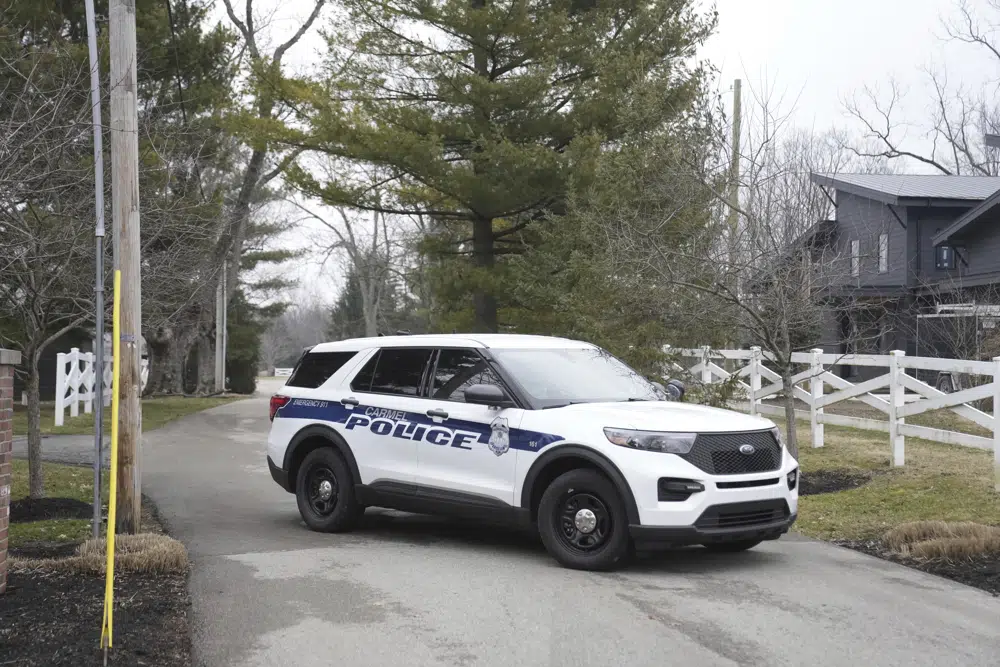During a search of former Vice President Mike Pence’s Indiana home on Friday, the FBI discovered an additional document with classified markings, following the discovery of sensitive government documents there by his lawyers last month.
According to Pence’s adviser Devin O’Malley, the Justice Department conducted a “thorough and unrestricted search lasting five hours” and removed “one document with classified markings and six additional pages without such markings that were not discovered in the initial review by the vice president’s counsel.”

The search, which was described as consensual after negotiations between Pence’s representatives and the Justice Department, comes after he was subpoenaed in a separate investigation into former President Donald Trump’s efforts to overturn the 2020 election, and as Pence considers a Republican run for President in 2024.
Pence is the third current or former top U.S. official, after Trump and Vice President Joe Biden, to have their homes searched for classified documents by FBI agents. The willingness of Pence and Biden to allow the FBI to search their homes and present themselves as fully cooperative reflects both men’s desire to avoid the drama that engulfed Trump last year, resulting in the Justice Department’s need to obtain a warrant to inspect his residence.
On Friday afternoon, police blocked the road outside Pence’s neighborhood in Carmel, just north of Indianapolis, because the FBI was inside the house. They were last seen leaving around 2 p.m. Pence and his wife were out of state, visiting family on the West Coast after their second and third grandchildren were born.
During the search, a member of Pence’s legal team was present, and the FBI was given unrestricted access to search for documents with classified markings, documents that could be classified but did not have markings, and any other documents subject to the Presidential Records Act.
Pence, according to O’Malley, has directed his legal team to continue cooperating with the DOJ and to “be fully transparent through the conclusion of this matter.”
The FBI had already taken possession of a “small number of documents” that had been “inadvertently boxed and transported” to Pence’s Indiana home at the end of the Trump administration, according to Pence’s lawyer.
The Justice Department did not immediately respond to a request for comment.
Separate special counsels are looking into the discovery of classified documents at Biden’s home in Delaware, his former Washington office, and Trump’s Florida estate. Officials are investigating whether Trump or anyone on his team criminally obstructed the investigation by refusing to turn over the documents prior to the FBI seizure. During a search warrant at Mar-a-Lago last August, the FBI recovered more than 100 classified documents.
In yet another document development, emails released late Friday revealed that after the National Archives learned of the discovery of classified papers at Biden’s former Washington office, Archives officials requested and received papers that the president’s personal attorney had shipped to a law office in Boston.
The Boston documents were thought to contain no classified information.
The circumstances surrounding the Biden and Pence cases are vastly different from those surrounding Trump.
During the uproar over the discovery of classified documents at Biden’s home and former private office, Pence requested a review of records stored at his home by his attorneys “out of an abundance of caution,” according to his lawyer Greg Jacob. When the Pence documents were discovered on Jan. 16 among four boxes transferred to Pence’s home during the transition, they were secured in a locked safe and reported to the National Archives, according to Jacob. They were then collected by FBI agents.
The majority of the items discovered in the boxes came from Pence’s residence at the Naval Observatory, where he lived while serving as Vice President. Other items were taken from a West Wing office drawer.
Pence has stated that he was unaware the documents were in his possession.
“Let me be clear: Those classified documents should not have been in my personal residence,” Pence said at Florida International University recently. “Errors were made, and I accept full responsibility.”
“We acted above politics and prioritized national interests,” he said.
Following the discovery of the Biden and Pence documents, the National Archives asked former presidents and vice presidents to recheck their personal records for any classified documents.
According to the Presidential Records Act, any records created or received by the president while in office become the property of the United States government and are managed by the Archives at the end of an administration.